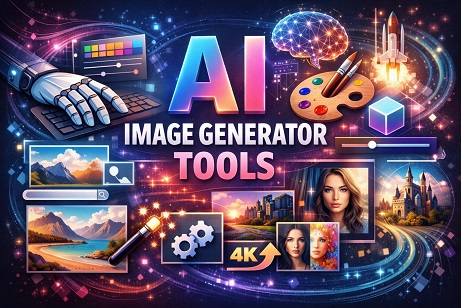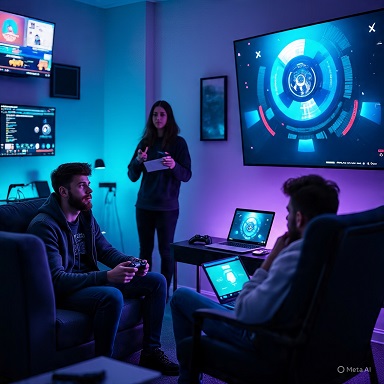Stories you may like
Digital Marketing Blogger
A digital marketing blogger writes articles, guides, and tips about online marketing. They share information on topics like social media, search engine optimization (SEO), email marketing, and paid advertising. Their goal is to help businesses and individuals understand how to promote themselves effectively on the internet.
These bloggers often build a website or blog where they publish their content regularly. They may also use videos, podcasts, or social media to reach more people. Many digital marketing bloggers earn money by recommending products, offering courses, or providing consulting services to their readers. Their work helps others learn how to grow their online presence and succeed in the digital world.
Duties and Responsibilities
The duties and responsibilities of a digital marketing blogger focus on creating valuable, engaging content that educates and informs readers about online marketing strategies and tools. Some key responsibilities include:
- Content Creation: Writing clear, well-researched blog posts, articles, and guides on various digital marketing topics like SEO, social media, email campaigns, and paid advertising.
- Audience Engagement: Building and maintaining a loyal readership by responding to comments, emails, and social media interactions, and encouraging discussions.
- Marketing and Promotion: Using social media, email newsletters, and SEO techniques to attract visitors to the blog and grow the audience.
- Monetization: Developing ways to earn income from the blog, such as affiliate marketing, sponsored posts, selling digital products, or offering consulting services.
- Staying Updated: Continuously learning about the latest digital marketing trends, tools, and best practices to provide accurate and useful information.
- Analytics and Improvement: Monitoring website traffic, user behavior, and engagement metrics to refine content strategy and improve the blog’s effectiveness.
Workplace of a Digital Marketing Blogger
The workplace of a digital marketing blogger is usually very flexible and often based anywhere with an internet connection. Many digital marketing bloggers work from home, a coffee shop, or while traveling. Since most of their work involves writing, researching, and managing online platforms, they mainly use a computer or laptop. This flexibility allows them to set their own schedules and work at their own pace.
A typical day involves creating content like blog posts, videos, or social media updates, as well as interacting with readers and followers through comments or emails. Digital marketing bloggers also spend time learning about new marketing trends, tools, and strategies to keep their content fresh and valuable. They often use software to analyze website traffic and understand which topics their audience likes the most.
While the work can be independent and quiet, it requires strong discipline, creativity, and communication skills. Digital marketing bloggers often juggle many tasks, from writing and editing to promoting their content and managing business partnerships. Despite the challenges, it’s a rewarding career for those who enjoy sharing knowledge and helping others succeed online.
How to become a Digital Marketing Blogger
Becoming a digital marketing blogger involves learning the field, building your writing skills, and growing an online presence. Here’s a general guide:
- Build Your Knowledge: Start by learning the basics of digital marketing, including SEO, social media, content marketing, email campaigns, and paid advertising. Use online courses, blogs, and videos to gain a strong foundation.
- Create Your Blog: Set up a website or blog where you can regularly publish helpful and clear content about digital marketing topics. Focus on providing value to readers who want to improve their marketing skills.
- Promote Your Content: Use social media, email newsletters, and SEO strategies to attract visitors to your blog. Engaging with your audience by replying to comments and questions helps build a loyal community.
- Specialize and Grow: Over time, consider focusing on a specific area like SEO, affiliate marketing, or social media to become an expert. This can help you stand out and open up monetization opportunities.
- Keep Learning and Stay Consistent: Digital marketing changes quickly, so keep updating your skills and produce quality content regularly to grow your blog and career successfully.
Helpful Resources
Here are some reliable and widely used resources to help you become a successful digital marketing blogger:
- Online Learning Platforms: Websites like Coursera, LinkedIn Learning, and edX offer courses on digital marketing fundamentals, SEO, content marketing, social media, and more. These platforms provide courses taught by industry experts and universities, often with certificates upon completion.
- Industry Blogs and Websites: Following trusted digital marketing blogs such as HubSpot, Moz, Neil Patel, and Content Marketing Institute can keep you updated on the latest trends, tips, and best practices.
- Books: Well-regarded books like Content Inc. by Joe Pulizzi, SEO 2023 by Adam Clarke, and Jab, Jab, Jab, Right Hook by Gary Vaynerchuk provide in-depth knowledge and practical advice for digital marketers and bloggers.
- Professional Communities: Joining groups on social media platforms and forums focused on digital marketing, such as LinkedIn groups or specialized Facebook communities, can offer support, networking, and real-world insights from other marketers.
- Analytics Tools: Learning to use tools like Google Analytics and Google Search Console will help you track your blog’s performance, understand your audience, and improve your content strategy.
Skills Needed for a Digital Marketing Blogger
1. Content Writing & Blogging Skills – Ability to write engaging, informative, and SEO-friendly blog posts.
2. SEO Knowledge – Understanding keyword research, on-page optimization, backlinks, and analytics.
3. Digital Marketing Awareness– Familiarity with email marketing, social media marketing, paid ads, and influencer marketing.
4. Research Skills – Staying updated on industry trends, digital tools, and competitor strategies.
5. Social Media Management – Promoting blog content across platforms like LinkedIn, Twitter, Instagram, and Facebook.
6. Basic Graphic Design & Visual Content – Using tools like Canva or Photoshop to create appealing visuals.
7. Analytical Skills – Using tools such as Google Analytics to track traffic, engagement, and conversions.
8. Creativity & Storytelling – Making content engaging and relatable to the target audience.
9. Time Management & Consistency – Meeting publishing deadlines and maintaining a regular content schedule.
10. Networking & Collaboration – Building relationships with brands, other bloggers, and digital marketing professionals.
Career of a Digital Marketing Blogger
A career as a digital marketing blogger involves creating online content that educates, informs, or promotes digital marketing strategies, trends, and tools. Bloggers in this field may work independently, contribute to marketing agencies, or collaborate with businesses as content creators and brand partners.
Career paths include:
- Freelance Blogger/Content Creator– Writing for multiple clients, personal blogs, or publications.
- In-house Blogger/Content Marketer – Working for companies or agencies to produce content aligned with brand goals.
- Affiliate Marketer – Earning through promoting digital marketing products, courses, or tools.
- Influencer/Thought Leader– Building an audience, partnering with brands, and monetizing via sponsorships.
- Consultant/Educator– Offering workshops, courses, or digital marketing consulting.
Salary of a Digital Marketing Blogger
Salaries vary depending on experience, audience reach, and whether they are freelancing or employed by an organization.
- Entry-Level: ₹2.5 – ₹4 LPA (India) / \$30,000 – \$45,000 (US)
- Mid-Level (3–5 years): ₹5 – ₹8 LPA (India) / \$45,000 – \$65,000 (US)
- Experienced/Influential Bloggers: ₹10+ LPA (India) / \$70,000+ (US), especially with multiple income streams (ads, sponsorships, affiliate marketing, and digital products).
- Freelancers often charge per blog post: ranging from ₹1,500–₹10,000+ per article (India) or $50–\$500+ per article (US), depending on expertise and niche.
Growth Outlook: With the rapid rise in digital marketing, content creation, and online branding, demand for skilled digital marketing bloggers is steadily increasing worldwide.









User's Comments
No comments there.